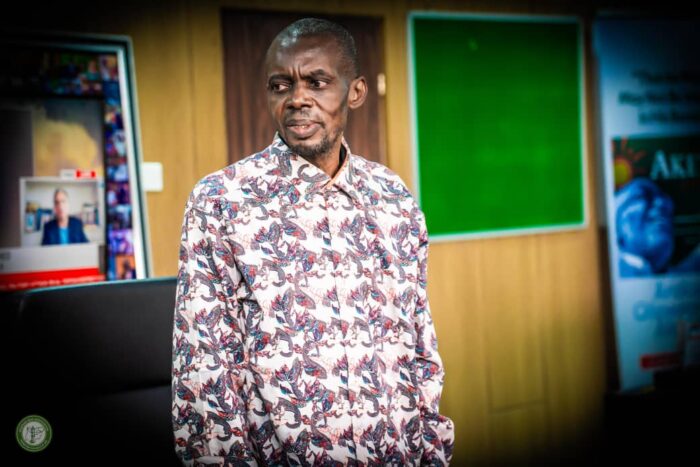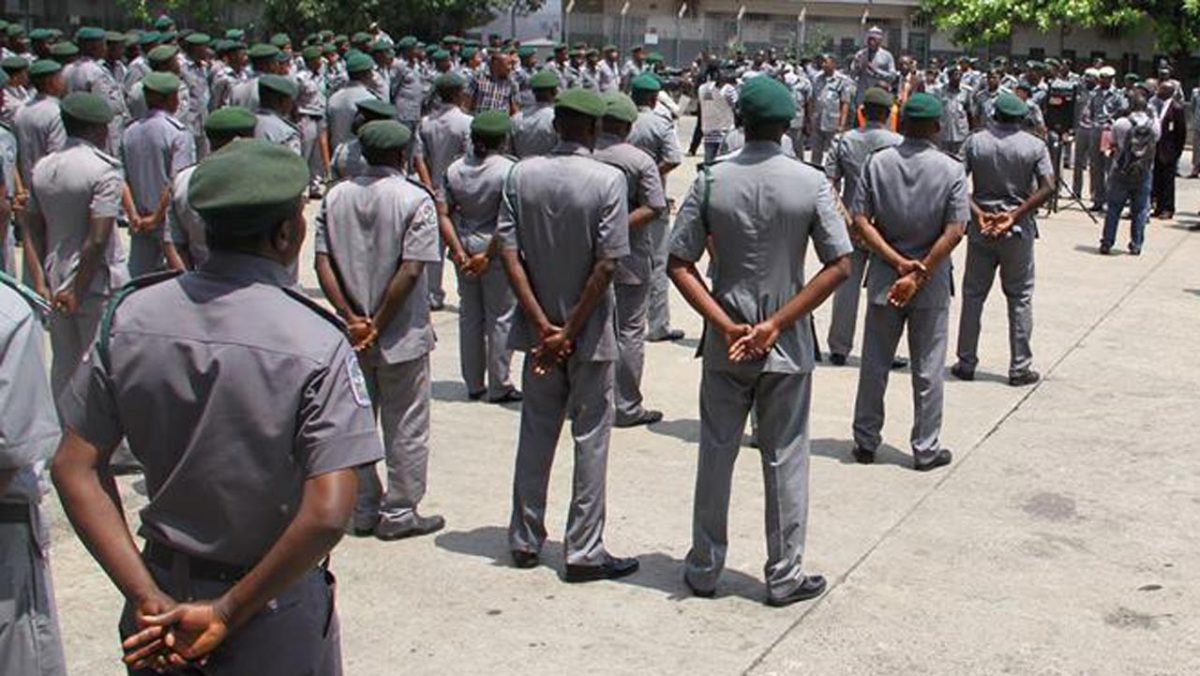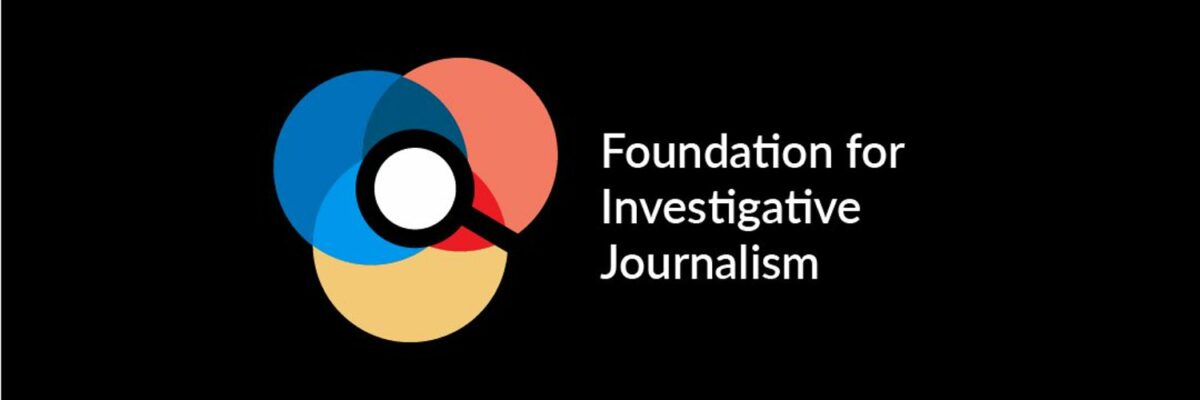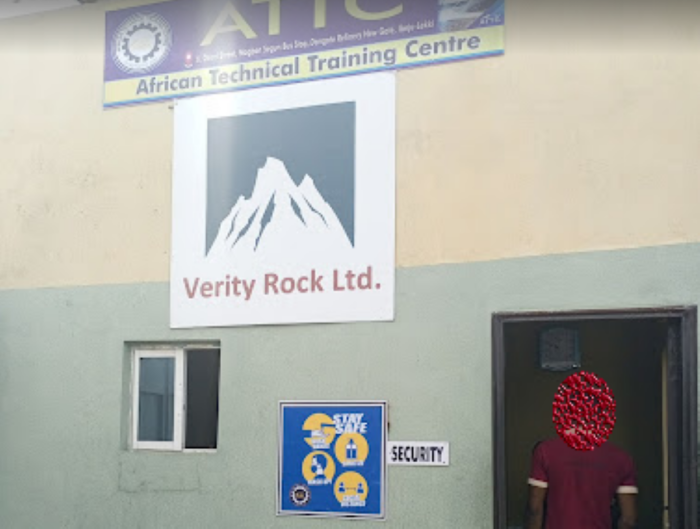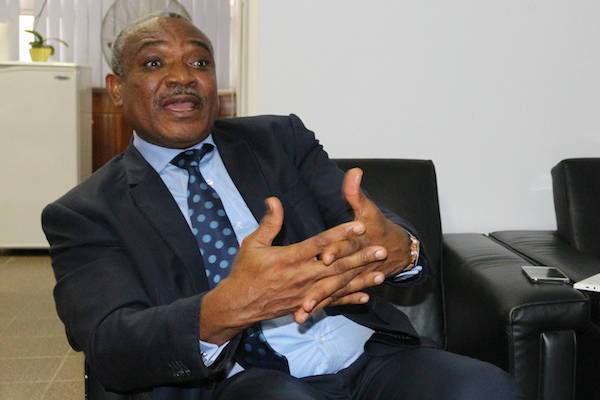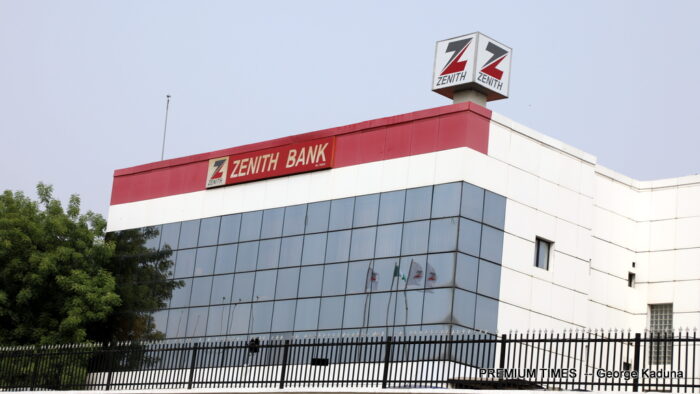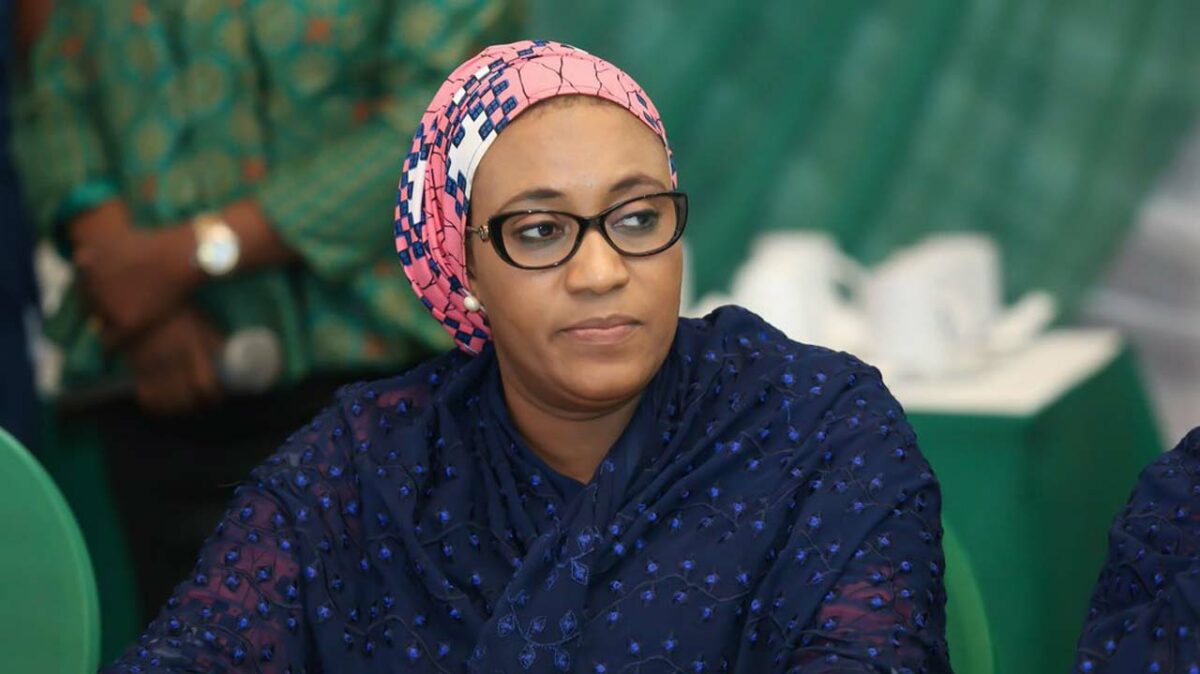On May 17, a tweet went viral about how Pius Awoke, a legal practitioner, was arrested on his way from a court proceeding in Abuja. Following his arrest, Awoke spent three years in a military facility in Wawa, Niger State. On Sunday, he was released without any idea of the cause of his offence. In this interview with FIJ’s Opeyemi Lawal, he shares details of his illegal detention.
Can you take us back to that day in July 2021 when the Department of State Service (DSS) arrested you?
I was arrested on July 26, 2021. That particular day, around 4:00 pm and 4:30 pm, I was returning from the Federal High Court, Abuja, after witnessing the arraignment and trial of Nnamdi Kanu, the leader of the Indigenous People of Biafra (IPOB).
While I was returning with some other occupants of the vehicle I boarded, at the end of Muritala Mohammed Bridge, along the Abuja-Lokoja Expressway, we met a military checkpoint, and they stopped us. They met our driver and told him that there were some vehicles that DSS officials were pursuing from Abuja, that we should park there and wait for them, that we should be patient and not be in a hurry, that very soon, the DSS officials would show up.
We waited because we were not suspecting anything because we had no incriminating object in our vehicle. We parked by the roadside and waited for the DSS. After some 30 minutes, they arrived, and by the time they came, we had already alighted from the bus. They told us to go back, and we returned into the Sienna bus.
Then, they came and asked us to surrender our phones, which we did. Afterwards, one of them brought out a piece of paper from his chest pocket. It seemed there was a phone number he needed, and he started dialling the numbers on the piece of paper one after the other. He was dialling the numbers on our phones. Later, I think he didn’t find the number he was looking for on any of our phones, and they returned our phones to us.
After this, they went back behind some vehicles and had some brief discussions. They returned to us only to ask for our phones again, and we gave them to them. This second time, they started re-dialling the numbers again, and – maybe they didn’t find the numbers on our phones – gave them back again.
Meanwhile, let me say that there were two vehicles, and there were eleven of us in both. We were all going to Ebonyi from Abuja on that day, and all of us were stopped.
The second time they requested our phones, they said that if you had any other phone in the vehicle, you should bring it out, but nobody had any other phone. Then they said we should come out of the vehicle. We did, and they searched the vehicle with their own hands but didn’t find anything there. So, they began to search our bodies one after the other but still did not find anything.
So, one of us, Ojima Kenneth, had two extra batteries because the journey was to take us about two days – we had left Abuja the previous day. The officers asked him what phones used the batteries, and he said it was the same phone as the one they took from him because the other batteries could fail him on the road, but they said it was a lie, that he had thrown away the phone that had that battery, and that was where the problem started.
They told him to lie down, and they started using their boot to hit his head. They also used some cassava sticks to hit him. Afterwards, they arrested all of us and used ropes to tie our hands behind us, just like common criminals, and took us to the DSS headquarters in Lokoja that night.
The following day, I kept asking them what our offence was. I kept asking them to tell us what we had done, but all they said was that there were people who asked them to bring us, and if they took us there and we were not the ones they were looking for, they would release us.
They took us back to Abuja, and on our way there, they blindfolded and handcuffed us. We were even afraid they were going to kill us because they were with guns.
What happened when you got to Abuja?
When we got to the national headquarters of the DSS in Abuja, we were still blindfolded. I can’t tell everything that transpired there, however. They handed us over to some other officials, and they took snapshots of us and took records of the items that were in our possession, even though other things were in the vehicle. They then took us to a cell called ‘Basement 2 Underground Cell’. There, we spent two months before they transferred us to one military cantonment.
That day we were arrested, we did not eat anything because we were just driving to get something to eat in Lokoja. The day they also took us to Abuja, there was no food for us to eat, except that some of us drank water, as we found some of it in the cell.
When we asked them to give us food after they had closed offices, one of them, Joshua Daniel, came alone into the cell. He had some handcuffs with him. He asked that we file out of the cell; we did and then he asked us to undress.
After we did, he began to touch our bodies to know if any of us had any marks. If he found any, he would quiz the person and ask how he had come about it. When this was done, he picked an empty can of water, went to a corner, poured his urine into it and used it to bathe us one after the other. He poured it over our faces and mouths. He then handcuffed our hands together, two people to one handcuff. If you had to pee that night, you had to wake the other person up.
After about five days in that military cantonment cell, they started to interrogate us but failed to file us for an interview. They refused to tell us the exact offence they were holding us for. They were interviewing us in line with the Eastern Security Network (ESN), whether we knew them or what they represented. I told them I did not know what an ESN officer looked like because I had never set my eyes on one.
We remained in the cell amidst several interrogations until September 23, 2021. By then, they had already removed the two drivers who drove the vehicles. On the eve of the same day, they removed one of us from the cell, and by then, there were only eight of us remaining.
The remaining eight of us, they mixed us up with other Boko Haram suspects and drove all of us to the Wawa Military Cantonment in Niger State. I was there until my release on Sunday.
After they took you to Wawa Cantonment, were you at any point brought before a judge, made to appear before a court or offered bail?
While I was there, I never saw anyone I knew. In fact, from the day they took me to the military cantonment, I never set my eyes on any civilian except Red Cross officials. I was never arraigned in any court. I was never even interrogated for a supposed crime. The only thing they did for us was computer verification. Nobody ever interrogated me in Wawa. I never had any discussion with any official about the cause of my arrest.
Did you ever request to be allowed to contact your relatives or even demand to know the exact cause of your arrest?
They knew I was a lawyer. At the point I was arrested, I had my wig and gown with me, and they currently still have them in their possession. I also had my diary and pen with me. I showed my identity card to them and asked them repeatedly what my offence was. When they were taking names, I even told them to add the title ‘barrister’ to my name, but they removed it deliberately and ignored every evidence I had to prove I was wrongly arrested.
How did you survive the three years you spent in detention? Can you describe your experience?
I am just thankful to God because I left detention alive. A lot of people lost their lives in that place. That place is a house of torture. My trauma is something I can’t quantify. If I tell the world what I passed through at the hands of the army, they will be too shocked to believe me. You know their character.
The truth is, when we got to that place, they stripped us naked, all of us, in the open. They manhandled us, including physical torture, mental torture and the rest of it. That is all I can say.
Can you describe one of your most horrible moments in detention?
Like I told you, I am just grateful I am alive. Is it chronic hunger or thirst? Even as I am talking to you, there is no food there. The horrible experiences are too numerous to mention.
Was there anything that kept you going in the three years you were in detention, despite all the various forms of torture you endured?
I really do not know, but I know people were praying for me. I would also pray for freedom every day in my cell. We usually stay hungry the whole day, say from 6 am to 6 pm. The type of food they gave us there made everyone go into fasting. You had to fast the whole day so you could join the three meals you would be served and eat once so your body could at least get something.
Every day around the clock, we fasted from dawn to dusk just to join the meals together. They terribly underfed us. You must have seen my pictures on the internet. We had extremely poor diets. The three meals they served us daily were not even equal to one meal for a free person.
What kind of meals were you served?
The most common meal they served was eba. It came almost every day. They gave us rice as well. There was a time they would serve us beans, but now they say it is too expensive. They started by telling us that a bag of beans was sold for N120,000; later, they told us it had moved to N200,000. Then, they said beans was no longer available in the market.
They would then give us only pap, the basic one which was brought by Red Cross. Also, they would grind maize, put it in hot water and serve it like that.
Were you released alongside the eight people you were arrested with?
I was detained with the people I was arrested with from September 23, 2021, to March 12, 2022. And as we were separated on that day in March, there are some of them I never saw again till I was released. We were mixed up with Boko Haram suspects. In our cell, a one-room cell, we were 15 inmates. We had an open toilet and bathroom. The toilet is open, no door. If someone is using it, you’ll both be looking at each other. When you stare long enough, you distract yourself with something else. And sometimes, you wouldn’t even get water to clean up.
Until the end of last month, I stayed for one month and 17 days without a bath. I remember that in early June, I stayed days without water because there was none. There are a lot of horrible stories to tell, but I do not want to go into them because I am now a free man.
I understand you were released alongside Onyiba Emmanuel Chinonso, a computer science student at the Ebonyi State University. Was he in the same vehicle as you?
Yes, Chinonso and I were in the same vehicle. We were arrested on the same day and released on the same day. He was in Wawa Military Detention with me, and we had the same experience.
How did your release happen from your own end?
It was just a Wednesday. They had already served us for the day and closed our door and locked us inside. Before he left, the person who was like a porter, came back and opened our door. He called my name. Those in the cell knew me as Barrister. Most of them were Boko Haram suspects, and they did not know my name.
So, when the porter called my name, he just simply asked, ‘Who is Pious?’ One of us who was at the door said, ‘No Pious here,’ but I heard it. I then raised my hand and said, ‘I am the Pious.’
He told me to come out and put on my footwear. When I got outside, I saw a man sitting in front of three military men. He was sitting on the ground, in front of his own cell. This man, I later found out, was Chinonso.
So, I was suspicious that maybe something happened and Chinonso called my name. When I got there, they asked for my name, I told them. They asked for details of my arrest, and I recounted it. Since I was arrested I had stuck to the same version of my arrest, which is the truth, just because I did not want them to misquote me.
However, I have to state that when they called me, they asked for my name. I gave them my name, and they asked me where I came from. I told them and also added that I’m an international lawyer.
While we were there, one military personnel said I would stay in detention until I died. But the other person cautioned him and said that was not going to happen. Then the person who was interrogating me said he knew me. After a couple of minutes, he said they would call me to meet with the commander of the cantonment, that I should tell him the same story I told them and that I should also be praying. That was the way they put it.
The following day, a Thursday, they brought Chinonso and me out again, but this time for computer thumb printing. This didn’t work because there was no blood again. In the evening of the same day, they took us to the centre of the cantonment, where we met seven military men, including the commander, who interrogated us all over.
He asked us a few more questions and then said, ‘Happy freedom.’ He then gave the order that we be given clothes, but I was still sceptical. The next day, they provided us with the clothes, and they asked us to pack our things into a room. In that same room, they blindfolded us with black clothes and led us through the stairs and into a car.
They blindfolded us till we arrived at the DSS office in Mina. At the time, we didn’t know where we were. They just stopped the vehicle. After several hours of travel, they brought a document for me to sign, but I asked them how I could sign a paper blindfolded. This was when they told me I could remove my blindfold, and then I realised we were in the DSS office, Minna.
Another surprising thing was that one of the officers became very friendly with us, and he was imploring my patience while stating that I would soon meet the chairman of the Nigerian Bar Association (NBA), Minna, as he would sign my surety and they would hand us over to him. All the while, I thought they were planning to transfer us to another cell.
When he came, we met, and he filled his forms. The next day, they drove us in a DSS convoy to the DSS office in Abuja, where we met the NBA national chairman and were released fully.
Do you plan to sue the DSS for arresting you illegally?
No, I do not have that decision. I still need time to fully recuperate before I think of it. Also, I can’t go contrary to the people who fought for my freedom. I will have to speak with them first, just because I did not get myself out.
Now that you are free, do you plan to return to legal practice?
Wonderful. My profession. Since I was called to bar, I have not had any other profession. It is the job of my dream. I will go back to, but I will take enough time to heal.
Subscribe
Be the first to receive special investigative reports and features in your inbox.


